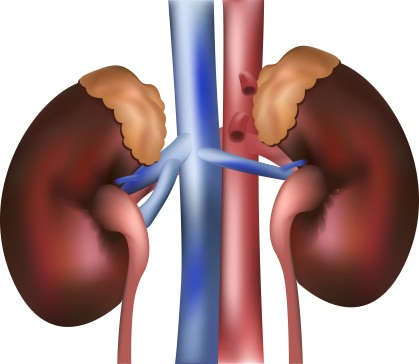Renal medicine (nephrology)
Curriculum - Renal medicine training (2010, with 2019 amendments)
Curriculum - Renal medicine training (2022)
JRCPTB Specialty Overview and Recruitment - http://www.st3recruitment.org.uk/specialties/renal-medicine
Mersey
Training Programme Director
Dr Mark Devonald
Liverpool University Hospitals NHS Foundation Trust
Email: mark.devonald@nhs.net
Regional Specialty Advisor
Dr T Ledson
Arrowe Park Hospital
Arrowe Park Road
Upton
Wirral
CH49 5PE
Email: tledson@nhs.net
Research interests
Dr. Anijeet has an interest in Peritoneal Dialysis
Dr. Bell has an interest in Renal Toxicology and Environmental factors in Renal Disease
Dr. Harper has an interest in Vasculitis.
Dr. Howse is involved in research in the clinical and laboratory aspects of Transplantation as well as Renal disease in Pregnancy.
Dr. Pai has an interest in Mineral Bone disorder.
Dr. Rustom has an interest in Renal Tubular disorder
Dr. Schulz has an interest in Haemodialysis technology.
North Western
Training Programme Director
Dr Durga Kanigicherla
Consultant Nephrologist
Manchester Royal Infirmary
Email: durga.kanigicherla@mft.nhs.uk
Regional Speciality Advisor
Dr Harish Shetty
Consultant Nephrologist
Royal Preston Hospital
Email: Harish.Shetty@lthtr.nhs.uk
Renal Specialty Training Induction Booklet
HEE NW Renal Training Programme

Renal medicine is the speciality dealing with diseases of the kidneys. As a trainee, you will be spending time both in a hospital setting on the wards, and in outpatient clinics. The majority of patients have long term conditions, and renal medicine remains one of the hospital specialties with the greatest opportunity for long-term follow-up of patients. In addition to renal medicine, you will be expected to dually accredit in general internal medicine.
The basic clinical program involves a series of rotations lasting one to two years through three different Trusts; Lancashire Teaching Hospitals (seven posts), Salford Royal NHS Foundation Trust (seven posts) and Central Manchester University Hospitals (eight posts), with an ancillary post at the University Hospital of South Manchester. GIM experience for Salford trainees is organised at Oldham Hospital
During your training, you will be exposed to a wide variety of clinical conditions including chronic kidney disease and acute kidney disease, dialysis, acute transplantation and stable transplant follow-ups home therapy experience and glomerulonephritis clinics. Other aspects of curriculum are met via exposure to genetic and rare diseases and renal diseases and pregnancy. Trainees will have opportunities to learn renal procedures like dialysis access and biopsies. On top of the general competencies, certain hospitals have specialisms that are available to trainees: Manchester Royal Infirmary is one of the hospitals in UK with a very high volume of transplants plus is one of the few hospitals offering pancreas and islet cell transplantation. ICU experience is available at Salford. There are limited opportunities of learning insertion of ‘medical’ peritoneal dialysis catheters. Renal physicians work as part of a multidisciplinary team with specialist nurses, dieticians and clinical psychologists. They also have close working relationships with radiologists, pathologists, transplant surgeons, critical care physicians, urologists and palliative care physicians.
Renal medicine is a traditionally academic speciality and is well supported by the training program in the North West, with approximately 30% of trainees typically out of programme for research at any one time. The research opportunities encompass the range from basic research to translational medicine and epidemiological studies of incidence of kidney disease in populations. Recent successes by our OOP(R) trainees include a prestigious Kidney Research UK fellowship on kidney fibrosis. Renal medicine in the NW also has academic clinical fellowships (ACF) and academic clinical lecturer (ACL) posts for trainees with long-term academic aspirations and these trainees are supported by an academic supervisor and mentors from the University of Manchester, along with monthly group meetings. These posts too reflect a wide variety of biomedical and clinical research.
Some of the research projects undertaken are:
Cardiovascular disease in CKD(CRISIS-HD)
Renovascular disease (RVD)
CKD epidemiology and CKD biomarker research (CRISIS cohort)
Membranous nephropathy
Dialysis research
CKD Mineral and Bone disease (CKD-MBD)
Genetics and renal development
Glomerular cell and matrix biology
ANCA vasculitis
Frailty
The Greater Manchester Renal Research Network holds half day academic meetings 3 times annually, and there are weekly research presentations at MFT and SRFT. Together the network researchers have published >350 peer-reviewed manuscripts and have acquired more than £3 million of peer-reviewed external grant funding for locally led projects during the last decade. An additional £10 million of collaborative grant income has been acquired.
Training and professional development is viewed highly as a key complement to clinical practice, and you will be expected to attend regularly both renal and G(I)M training days. Renal training days are either half or full-day sessions monthly and are based on the JRCPTB renal curriculum. Trainees are encouraged to attend national courses including the Advanced Nephrology Course, Dialysis, Peritoneal Dialysis, Physiology and Electrolyte, Histology and Transplant Courses. Generic courses are also supported by the training programme including the PG Cert in Workplace Based Postgraduate Medical Education at Edge Hill University at ST4 and also the postgraduate qualification in Medical Leadership.
Trainees are encouraged to undertake both formal and informal teaching at the three sites. Medical students from Manchester Medical School attend the three hospitals and there are ample opportunities for teaching. You are also encouraged to become OSCE examiners.
Recruitment for renal medicine is twice a year. NW deanery holds the interviews for Round One for August rotations.
There is a national person specification available on the JRCPTB web site for entry into higher medical training in renal medicine. Trainees usually would have completed 2 years of core medical training, have attained the relevant competencies and will have passed their ARCPs. Experience during this time in renal medicine is desirable. Audit is an essential part of training. Research experience, a case report or an audit on a renal topic will undoubtedly give you more to talk about at interview.
If you have any questions feel free to get in touch with me for an informal discussion.